Articles
English

Editorial 2-2019
The “Pipeline Technology Conference”, ptc is known and recognized worldwide despite its young age of 14 years. It is the most international and balanced Pipeline Technology Conference in the world. Participants and exhibitors come from over 55 countries. They are roughly from the following sectors:
Operator/Authority/Research (30%)
planning/…

Halliburton
This paper discusses pipeline internal deposition mapping and the benefits to operators of end-to-end pipeline internal diameter mapping, the practical application of this unique, nonintrusive technology, and insight about the full technical reach of this diagnostic service.
A pulse of pressure is induced in a pipeline by using the operation of a…
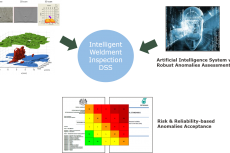
PETRONAS
The costs of pipeline failure are immense i.e. fatalities, environmental damages, loss of revenue and reputation. EGIG and OGP provides solid evidences and causal analyses of pipeline failures. PETRONAS has a structured methodology and system in eliminating pipeline failure. Nevertheless, failures do happen on newly constructed pipelines and those…

Reinhart Hydrocleaning
The relationship between company Dow Deutschland Anlagengesellschaft mbH (DOW) with its underground brine chamber sites around Ohrensen, Germany and Reinhart Hydrocleaning SA (RHC SA) is a success story in itself. Prior to explaining the different ways of mechanical cleaning brine pipelines one has to know that RHC SA has worked with DOW since…
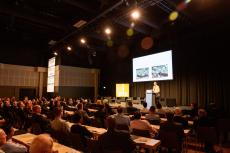
Phil Hopkins Keynote
This keynote presentation looks at the causes of engineering failures from many industries (aviation, construction, petro-chemical, medical, etc.). It suggests we can reduce failures in the pipeline industry by using the lessons learnt from these other industries, and emphasizes how the ‘root’ cause of a failure differs from the ‘failure’ cause.…
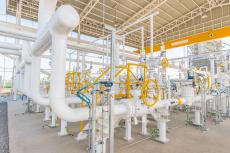
Kötter Consulting Engineers
In many technical applications pipelines are used for the transport of potentially flammable or hazardous gases and liquids. Vibration problems at pipelines often depend on the volume flow. Vortex shedding is a typical result of flow induced pulsations and may cause severe piping vibrations and failures. Another excitation source for critical…
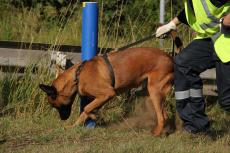
The Sniffers
Oil and natural gas are still the world’s leading energy sources with a market value larger than valuable raw material markets combined. An enormous number of pipeline networks across the globe are used to transport these energy resources from exploration and production sites to consumers through extreme geological and hazardous environments.…
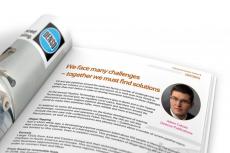
Editorial 1-2019
Oil and gas pipelines around the world are facing a number of challenges that will shape our industry in a severe way and require us to work even more closely together than ever before in order to develop innovative solutions to these challenges. At the annual Pipeline Technology Conference (ptc) in Berlin and in the Pipeline Technology Journal (…

Saudi Aramco
A critical step in ensuring that a pipeline is fit and healthy for operations is continuous scraping “cleaning” and frequent scraping inspection. If scraping activities are not properly performed, pipeline integrity can be at risk.
In a case study, numerous networks of pipelines were found to be operated with different experiences and internal…
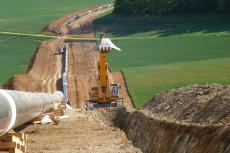
DENSO / Open Grid Europe
A highly sophisticated and well coordinated active and passive corrosion protection is mandatory for a long-lasting integrity and an error-free operation of a new pipeline. Furthermore, importance from an economic point of view it is of essential importance for the achievement of the target lifetime.
The passive corrosion protection includes all…
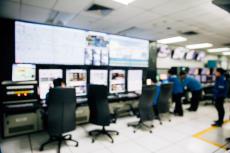
MOL
In the recent years, the “integrity” issue has become a popular topic with pipeline operators and the development companies.
Generally, it means the use of more advanced diagnostics tools, the corrective interventions that are based on the results and advanced SCADA (Supervisory Control and Data Acquisition) application. The advanced technical…

Editorial 6-2018
Under this well-known slogan one should classify what can currently be observed in pipeline technology: Large TSO with their technology subsidiaries from Asia and Eastern Europe (e.g. Transneft, Sinopec and others) are pushing their way into the markets in North America and Western Europe.
This development naturally has several facets:
On the one…
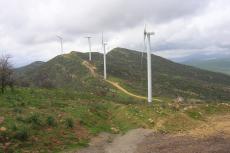
Saipem
Increasing investments in renewable energy resources has led, in recent years, to the significant growth of wind energy and an associated increase in wind farm installations in many countries. However, the installation of wind turbines has very often been completed in the absence of specific requirements and limitations (e.g. minimum safety…
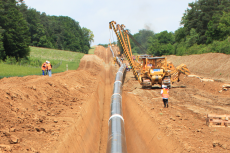
Open Grid Europe
Within the scope of the presented work, a simulation model was developed which completely depicts the buried pipeline and the surrounding soil. The model was validated using a number of analytical methods.
The bedding conditions of the pipe trench are described by means of a standardized criterion which takes into account the filled soil type…
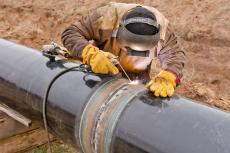
TANAP
Following the decision of TANAP management to implement the latest technology on the Construction of the Trans Anatolia Natural Gas Pipeline (TANAP), and to validate such technology by means of improvements (in schedule, cost and quality), a decision was taken to implement Engineering Critical Assessment (ECA), as a fitness for purpose approach to…
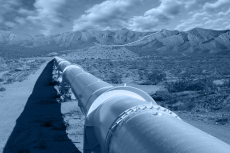
Krohne
Requirements for pipeline leak detection systems increase continuously. In Germany the operation of leak detection systems is regulated by the TRFL (Technische Regel für Fernleitungen). Even though it is a national standard, it has international acceptance as for example API1175 recommendations follow the TRFL. In May 2017 an updated version of…
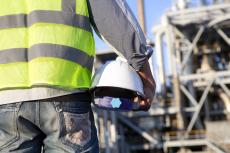
DVGW
An extensive gas infrastructure system crisscrossing Germany ensures the high reliability of supply of heat and electricity to the civilian population, of process heat/heat energy and natural gas as a raw material for organic chemistry to the industry, of highly efficient primary energies to power plants, and of alternative environmentally…
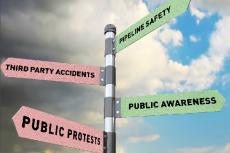
CSE
Gas transmission pipelines belong to the critical infrastructure – they are essential for the energy supply of the industry and public households. International and national statistics1,2 show a continuous decrease in the number of events per 1000 km pipeline length as a result of a permanent increase in Technical Safety during the last thirty…
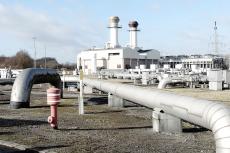
Open Grid Europe
The construction, operation and maintenance of high-pressure gas pipelines require conscientious planning and execution, taking numerous aspects into account. The focus must always be on ensuring that the surrounding is not impaired and that the safety of people and the environment is not endangered. In order to guarantee this, the DVGW rules and…
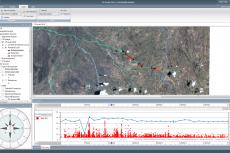
Rosen
Risk management is an essential element in the pipeline integrity management process. Risk management involves not only the estimation of risk profiles and comparison against tolerable criterion but also ensuring that measures to treat the risk are effectively assessed and implemented. Performing risk assessments can assist operators and engineers…
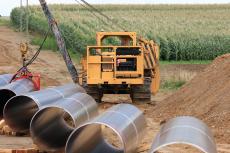
BIL
The foundation of BIL eG by 17 German pipeline companies from the chemical, high-pressure gas and mineral oil sectors on 15 June 2015 cleared the path for developing the national information system for pipeline enquiries, BIL. With the implementation of an internet portal and a database backend, at the start of 2016 BIL will provide the first cost…
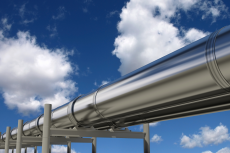
TÜV NORD Systems
In the construction of pipelines for the transport and storage of combustible, corrosive or toxic gases and water-polluting fluids, independent inspections by experts is an essential aspect of quality assurance which contributes significantly to the safety of these systems. This does not only apply to new projects, but also to modifications,…
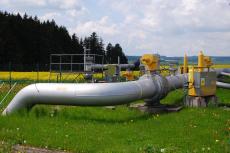
DVGW
The guarantee of a high safety standard of the gas infrastructure must be the highest goal of economic and operational action within the framework of proceeding national and European regulation and the organisational changes interrelated in the companies [1].
At the beginning of the 1990th DVGW, the German Association for Gas and Water, developed…
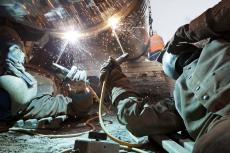
ONTRAS
Companies that operate technical systems, e.g. the German gas transmission system operator ONTRAS Gastransport GmbH, must ensure operational safety at all times, that all associated procedures and processes comply with the applicable laws and regulations, and that the company is also prepared to react in case of emergencies. Haphazard trial and…

Editorial 4-2018
What an outstandingly warm summer this had been. We hope you could enjoy the sun and recharge your energy levels. Maybe some of you spent time on the water, including passing wind turbines and crossing offshore pipelines. However, despite the warmth, parts of Europe have suffered from severe weather, like dryness, thunderstorms, and flooding. It…

